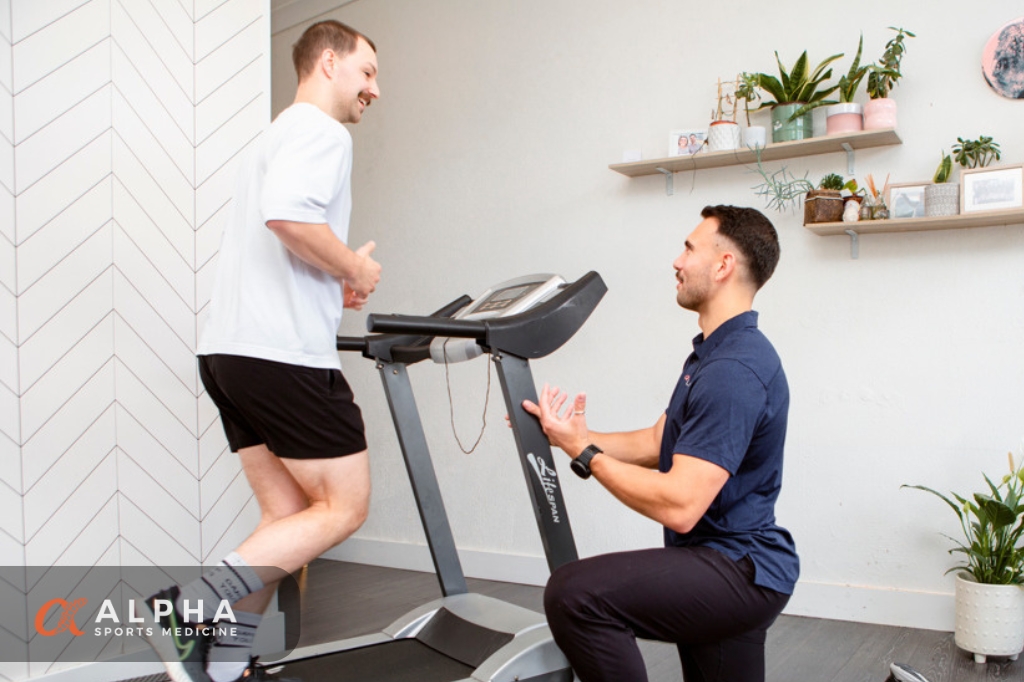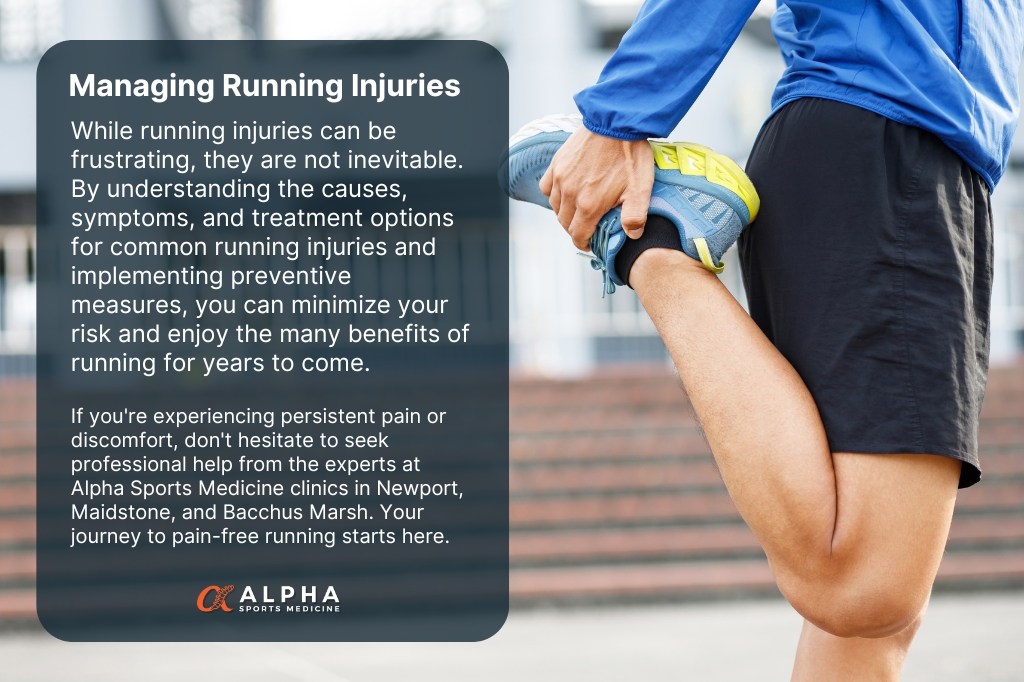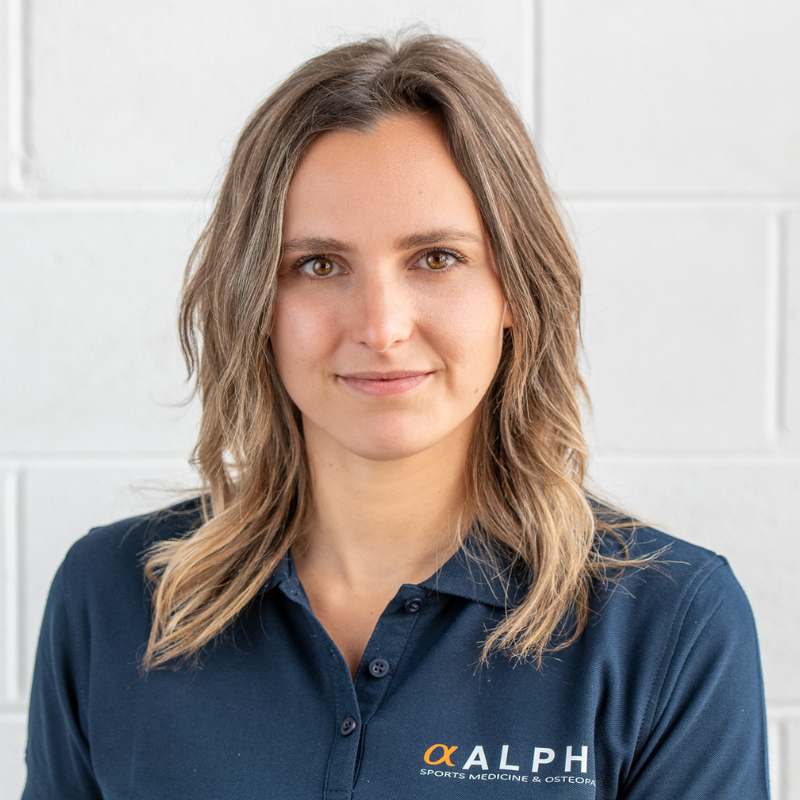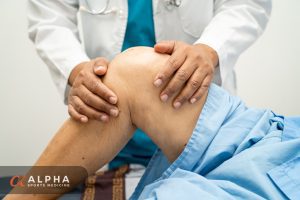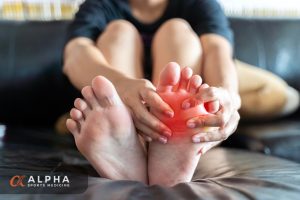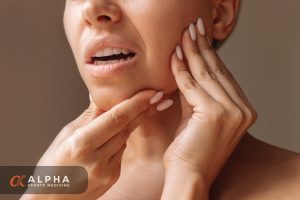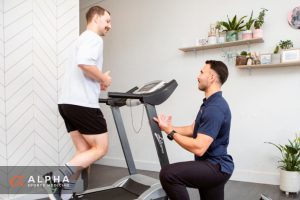Running is a fantastic way to stay fit, relieve stress, and enjoy the great outdoors. However, it’s not without its injury risks. From shin splints to stress fractures, runners are susceptible to a variety of injuries that can put a halt to their training. In this blog post, we’ll explore some of the most common running injuries, their causes, symptoms, and treatment options and prevention of injury.
Plus, we’ll provide insights from Alpha Sports Medicine running experts from Newport, Maidstone, and Bacchus Marsh on how to prevent and manage these injuries effectively.
Shin Splints:
Causes: Shin splints, or medial tibial stress syndrome, occur due to overuse and repetitive stress on the shinbone and surrounding tissues. Factors such as sudden increases in training intensity, increasing running load too quickly, running on hard surfaces, poor foot mechanics and strength as well as improper footwear can contribute to shin splints.
Symptoms: Pain along the inner edge of the shinbone (tibia) during or after running, tenderness, swelling, and mild to moderate discomfort.
Treatment: Running gait assessments can help understand the biomechanical imbalances that lead to the shin splints, you can book in for a running assessment at any one of our Alpha Sports Medicine locations. Strengthening exercises for the calf muscles, tibialis posterior muscles and intrinsic foot muscles. Load management of running and a running plan are essential for gradual return to running.
Runner’s Knee (Patellofemoral Pain Syndrome):
Causes: Runner’s knee is characterized by pain around or behind the kneecap (patella) and is often attributed to issues with knee cap alignment, biomechanics of the knee, overload of the knee joint, muscle imbalances, or overuse.
Symptoms: Pain during or after running, particularly when going up or down stairs, swelling, popping or grinding sensations in the knee, stiffness, and difficulty bending or straightening the knee.
Treatment: We would recommend a running assessment with one of our Running Experts located at Newport, Maidstone and Bacchus Marsh. We recommend guided physical therapy with our Running Osteopaths to address muscle imbalances and strengthen the quadriceps, hamstrings and hips. Patellar taping or bracing, orthotics or shoe inserts, modifying training load, ice and non-steroidal anti-inflammatory drugs (NSAIDs) can help manage pain symptoms.
Achilles Tendinopathy:
Causes: Achilles tendinopathy is inflammation of the Achilles tendon, typically resulting from overuse, tight and weak calf muscles, improper footwear, or sudden increases in training load and intensity.
Symptoms: Pain and stiffness along the back of the heel or lower calf, redness, swelling, tenderness, morning stiffness, and difficulty walking or running. Typically with a warm-up, the Achilles will feel a bit better when active, and worse at rest.
Treatment: Rest isn’t going to help a tendon injury, tendon injuries require exercise load to heal, which is why we recommend a guided exercise rehab program with one of our Running Osteopaths. Strengthening exercises for the calf muscles and Achilles tendon, as well as the intrinsic strength of the foot. Your osteopath may also suggest a heel lift or change in footwear, as well as a gradual return to a running program.
Stress Fractures:
Causes: Stress fractures are small cracks or breaks in the bones caused by repetitive stress or overloading, often due to sudden changes in training volume, running on hard surfaces, or inadequate footwear. Stress fractures can be common in teens who are performing a lot of sports and activities as they are going through growth spurts.
Symptoms: Localized pain that worsens with activity and improves with rest, swelling, tenderness, and bruising over the affected area. Usually accompanied with a sudden increase in running load and not enough strength training.
Treatment: Rest, immobilization (e.g., wearing a moon boot) for 6-8 weeks, non-weight-bearing activities, gradual return to weight-bearing activities, proper nutrition and strength training to support bone health, addressing underlying factors contributing to the fracture (load management, nutrition, blood tests to rule out deficiencies)
Prevention Tips from Alpha Sports Medicine:
- Consider a running gait assessment before starting your running journey so you can address any imbalances and gait corrections before commencing your running training.
- Gradually increase training intensity and load to allow your body to adapt. We recommend following a tailored running program designed by our Running Osteopaths that is suited to your goals.
- Invest in proper footwear that provides adequate support and cushioning for your running style and foot structure.
- Incorporate strength training and cross-training activities to address muscle imbalances and improve overall fitness.
- Listen to your body and address any signs of pain or discomfort promptly to prevent minor issues from escalating into major injuries.
- Prioritize nutrition for optimal recovery.
- Make sure you are getting at least 8 hours of sleep per night to optimize recovery.
- Consult with one of our running specialists at Alpha Sports Medicine in Newport, Maidstone and Bacchus Marsh for personalized advice and guidance on injury prevention and management.
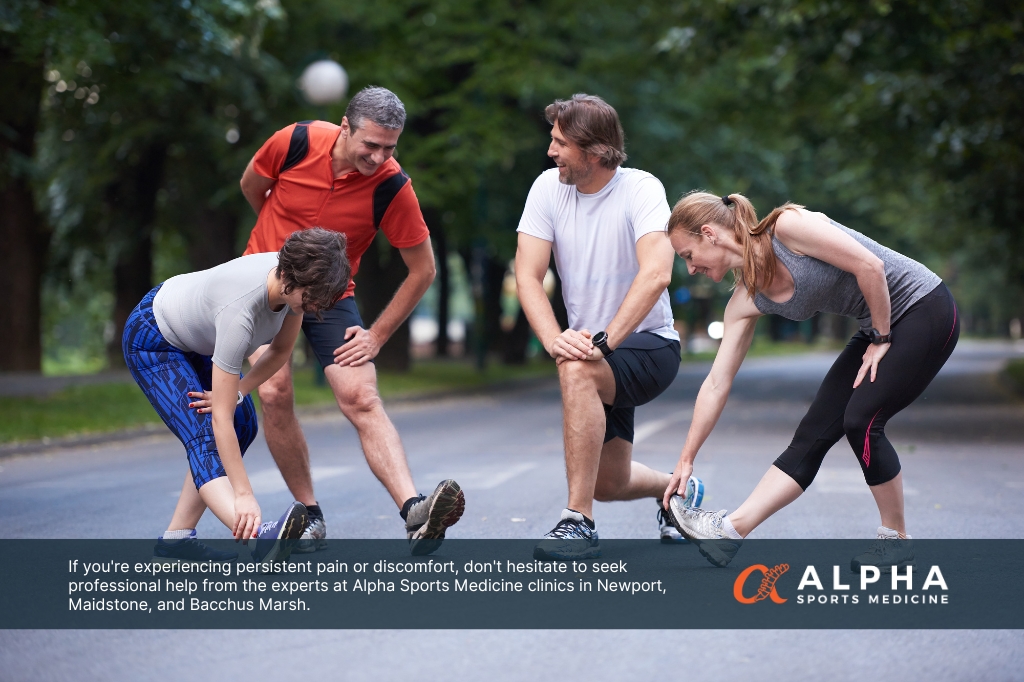
Conclusion:
While running injuries can be frustrating, they are not inevitable. By understanding the causes, symptoms, and treatment options for common running injuries and implementing preventive measures, you can minimize your risk and enjoy the many benefits of running for years to come.
If you’re experiencing persistent pain or discomfort, don’t hesitate to seek professional help from the experts at Alpha Sports Medicine clinics in Newport, Maidstone, and Bacchus Marsh. Your journey to pain-free running starts here.
Author
-

Dr. Ashton Wilson began her studies with a three year Bachelor of Biomedical Science, where she majored in Anatomy and Physiology. She then switched to a more hands on approach, where she completed a three year Bachelor of Clinical Science and a two year Masters of Osteopathy. Ashton has since completed further education and is a qualified Strength and Conditioning Coach as well as a Kinetic Link Trainer.
View all posts

